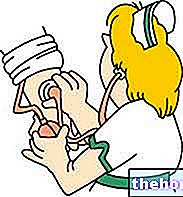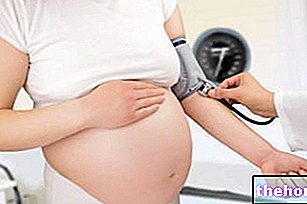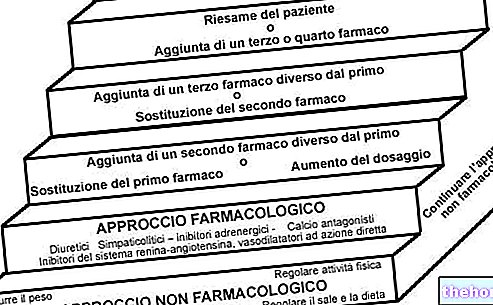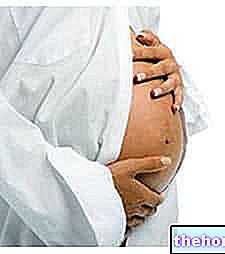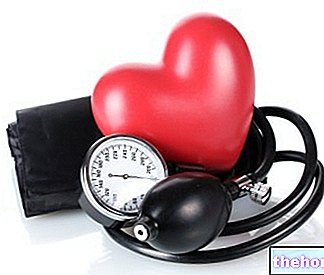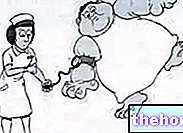A person is considered hypertensive if:
- The minimum blood pressure (or diastolic pressure) "constantly" exceeds the value of 90 mm / Hg e
- The maximum arterial pressure (or systolic pressure) "constantly" exceeds the value of 140 mm / Hg.
In common jargon, hypertension is the condition defined by the term "high blood pressure", an important risk factor for the onset of diseases affecting the cardiovascular system, such as heart attacks, ischemias and strokes.In addition to drug therapy, a correct lifestyle, which includes physical activity and correct nutrition, can contribute decisively to the lowering of blood pressure.
stronger and more efficient at pumping blood, which lowers the pressure in the arteries. It is shown that 150 minutes of moderate exercise, such as walking, or 75 minutes of strenuous exercise, such as running, spinning, aerobic activity, per week, can help lower blood pressure and improve heart health. walking for even 30 minutes a day can help lower blood pressure.
Cut back on sodium
Salt intake is often too high. This is largely due to the processed and prepared foods that make up the Western diet. Many studies have linked a high salt intake with hypertension and cardiac events, including heart attacks and strokes. If you have constant high blood pressure, it is worth reducing your sodium intake to see if it makes a difference. Replace processed foods with fresh ones and season with herbs and spices rather than salt.
Cut down on alcohol, caffeine, and avoid smoking
- Alcohol Drinking alcohol can increase blood pressure. In fact, alcohol is linked to 16% of hypertension cases worldwide. While some research has suggested that low to moderate amounts of alcohol (such as the classic glass of red wine with meals) may protect the heart, such benefits may be compensated for by adverse effects, such as increased blood pressure.
- Smoke. Cigarette smoking is a strong risk factor for developing heart disease. Each puff of cigarette smoke causes a slight temporary increase in blood pressure. The chemicals in tobacco are also known to damage blood vessels.
- Caffeine. A cup of coffee capable of causing an instant boost in pressure levels. Caffeine, if taken in excessive doses, causes a sudden rise in blood pressure.
Eat foods rich in potassium, calcium and magnesium
Potassium is an essential mineral for the good functioning of the organism. It helps the body to get rid of sodium and reduces the pressure on blood vessels. To obtain a better balance between potassium and sodium in your diet, it is recommended to eat fresh foods and whole, unrefined or processed
Foods particularly rich in potassium include:
- vegetables, especially green leafy vegetables, tomatoes, potatoes, and sweet potatoes
- fruit, including melons, bananas, avocados, oranges and apricots
- dairy products, such as milk and yogurt
- tuna and salmon
- nuts and seeds
- beans
People with low calcium intake often have high blood pressure. Although calcium supplements have not been conclusively proven to lower blood pressure, diets high in calcium appear to provide satisfactory results on blood pressure levels. For most adults, the calcium recommendation is 1,000 milligrams (mg) per day. For women over 50 and men over 70, it is 1,200 mg per day.
Foods that are particularly high in calcium include:
- dairy product,
- cabbages
- green leafy vegetables,
- beans,
- sardines
- tofu.
Magnesium is an important mineral that helps blood vessels relax. Although magnesium deficiency is quite rare, some studies have suggested that insufficient magnesium intake is linked to hypertension.
Foods particularly rich in magnesium include:
- vegetables such as chard, artichokes and spinach,
- nuts such as walnuts, almonds, cashews, peanuts, pistachios and hazelnuts
- dairy product,
- legumes,
- chicken,
- Whole grains.
Eat dark chocolate
Small amounts of dark chocolate could help heart health, and help lower blood pressure. This is because dark chocolate and cocoa powder are rich in flavonoids, plant compounds that cause blood vessels to dilate. For the strongest effects, use non-alkalized cocoa powder, which is particularly rich in flavonoids and has no added sugars.
Limit refined sugars and carbohydrates
Not just sugar, but all refined carbohydrates, such as those found in white flour, quickly convert to blood sugar and can cause ailments. Low-carb diets can also help lower blood pressure. A study in people on statin therapy found that those who followed a 6-week low-carb diet saw greater improvement in blood pressure, insulin sensitivity, and microvascular function, compared to people who they have not limited carbohydrates Pay attention to the calories of foods and drinks highlighted on the label.
Anti hypertensive berries
Berries are rich in polyphenols, natural plant compounds that are good for the heart. Polyphenols can reduce the risk of stroke, heart disease and diabetes, as well as improve blood pressure, insulin resistance and systemic inflammation.
Supplements that help lower blood pressure
Some natural supplements can also help lower blood pressure:
- Aged garlic extract
- Berberine
- Whey protein
- Fish oil
- Hibiscus
", meditation and deep breathing deserve specific mention. Both meditation and deep breathing can activate the parasympathetic nervous system. This system is activated when the body relaxes, slowing the heart rate and lowering blood pressure. Techniques too. deep breathing can be effective: taking six deep breaths in 30 seconds, in a relaxed and seated position, helps to lower blood pressure

